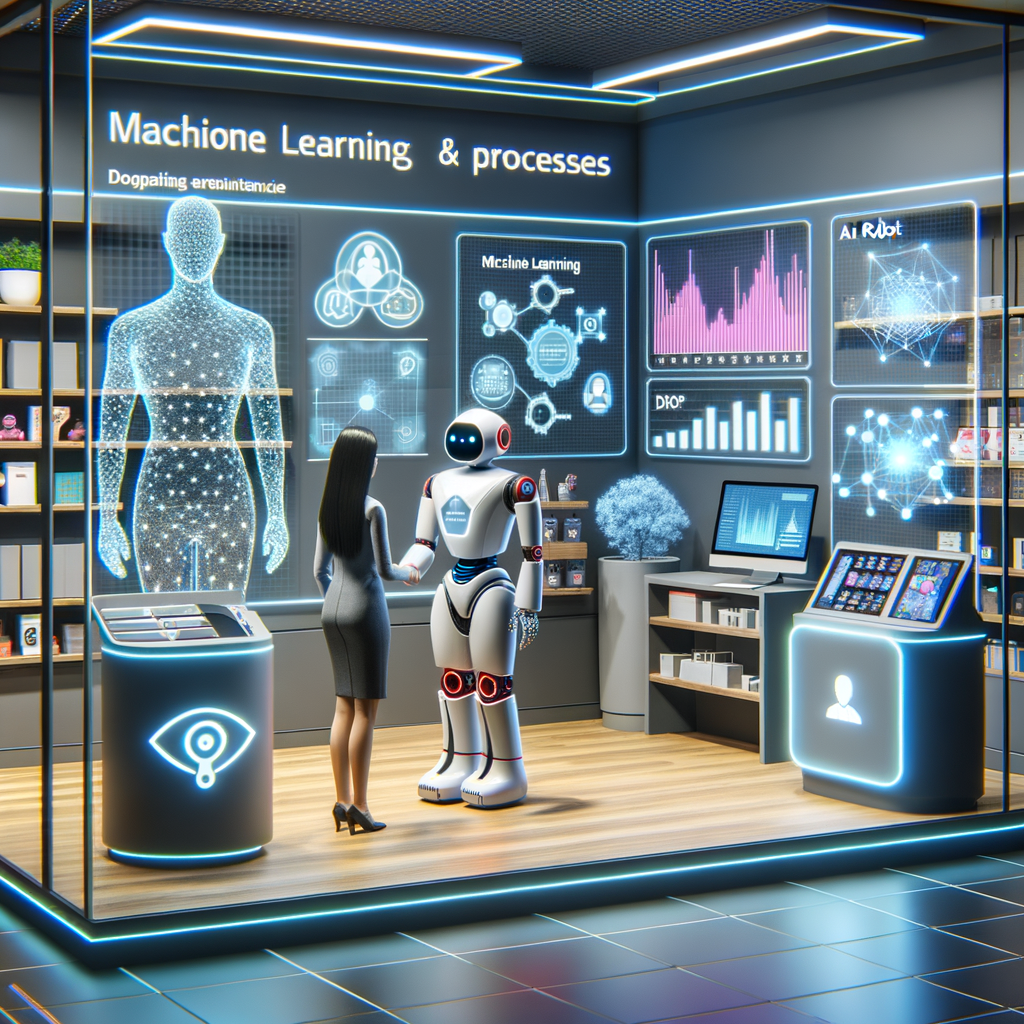
Unleashing Potential: How AI and Machine Learning Reshape Retail Experiences
Discover the transformative power of AI and machine learning in the retail industry. This blog explores advancements in personalized shopping experiences, inventory management, and customer engagement, revealing how these technologies are creating smarter, more efficient retail environments.
Unleashing Potential: How AI and Machine Learning Reshape Retail Experiences
Introduction
In the bustling world of retail, standing out from the crowd requires more than just offering top-notch products. Retailers are increasingly turning to cutting-edge technologies like Artificial Intelligence (AI) and Machine Learning (ML) to revolutionize customer experiences, optimize inventory management, and efficiently engage customers. In this article, we will dive into how AI and ML are not only reshaping the retail landscape but also setting the stage for a future where shopping is more intuitive, personalized, and streamlined.
Enriching Customer Experiences
Personalized Shopping Journeys
Today's consumers expect a shopping journey that is not only smooth but tailored to their individual preferences. AI and ML play a crucial role in delivering such experiences through data collection and analysis. By understanding consumer behaviors, retailers can create personalized recommendations that meet the unique tastes and preferences of each customer, enhancing satisfaction and loyalty.
Chatbots and AI Assistants
Gone are the days of waiting in line at customer service desks. AI-driven chatbots and virtual assistants provide immediate support, handle routine inquiries, and guide customers through their shopping journey. These intelligent systems are constantly learning, improving their responses, and adapting to provide highly relevant solutions to customer queries.
Optimizing Inventory Management
Predictive Analytics for Demand Forecasting
One of the significant challenges in retail is balancing supply with consumer demand. AI-driven predictive analytics tools are game-changers in this domain. By analyzing historical sales data and market trends, AI systems can forecast demand more accurately, ensuring that retailers maintain optimal inventory levels and reduce overstock and stockouts.
Automation in Inventory Processes
AI and ML help automate many inventory management processes. Smart shelving, for example, uses sensors to keep track of stock levels in real time. Additionally, ML algorithms can automate inventory replenishment, focusing on restocking popular items while considering seasonal trends and fluctuations.
Revolutionizing Customer Engagement
Enhanced Interaction through Augmented Reality
Augmented Reality (AR) powered by AI is driving a new wave of interactive shopping experiences. Customers can virtually try on clothes, visualize furniture in their homes, or test products before making a purchase. This interactivity not only enhances the customer's shopping journey but also increases the likelihood of conversions.
Social Listening and Targeted Marketing
Understanding customers' opinions and sentiments is crucial in crafting effective marketing strategies. AI tools capable of social listening help retailers analyze consumer feedback from social media and other online platforms. This information is instrumental in creating targeted marketing campaigns, improving the customer relationship, and driving sales.
Setting the Stage for Future Retail
Smart Stores
The concept of smart stores is gaining momentum with AI technologies at the core. These stores leverage AI-driven systems for functions ranging from space optimization to checkout processes using facial recognition or mobile payment systems. The integration of such technologies not only enhances operational efficiency but also improves customer satisfaction.
Ethical Considerations and Data Privacy
While AI and ML offer profound benefits, it’s important to consider ethical implications and data privacy concerns. Retailers must ensure transparent data practices and enforce strict privacy measures, building trust with customers who want to know their data is in safe hands.
Conclusion
AI and ML are set to revolutionize retail experiences by making them more personalized and efficient. As these technologies continue to evolve, the possibilities for innovation in retail are boundless, promising a future where shopping is seamlessly integrated into everyday life. Retailers that embrace these changes now will undoubtedly lead in shaping the consumer experiences of tomorrow.